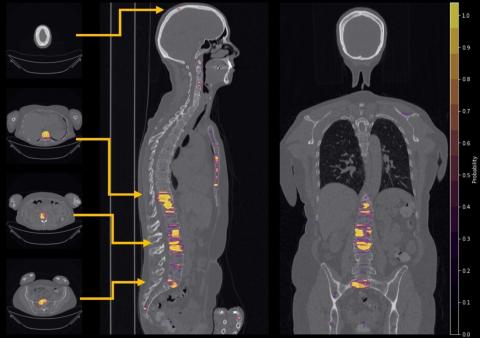Deep Learning for Medical Image Data
The number of patients and healthcare costs in hospitals are increasing substantially. Almost 90% of clinical data collected in ongoing patient care are images. These images include X-rays, CT-scans and MRI images.
-

dr. Sharon Ong
Principal Investigator

With the large amount of data from hospitals, we develop and deploy algorithms for medical image analysis. Among our applications are the following:
- Detection and localization of bone tumors from CT-scans to create a detailed anatomical map of lesion locations
- Registration (alignment) of follow-up CT-scans to monitor injuries
- Prediction of patient’s outcomes after surgery from MRI images combined with clinical information and cognitive test performance scores
- Detection scaphoid fractures from X-rays
Our tools can aid clinical decision-making. In radiology, our tools can relieve radiologists from repetitive, time-consuming tasks and detect objects which a radiologist may miss. Hence, radiologists or residents can use AI to enhance learning.
However, AI systems may result in false positives through misclassifications or false detections and hence should learn from the experts as well.
Together with radiologists at ETZ hospital, this research line is developing a hybrid clinician-AI system that will facilitate a way for experts to override the false internal representations, providing feedback to the AI system.
Projects
- Implementation of AI to detect bone tumors and monitor their progress in the clinical workflow
- Artificial intelligence to improve the individual decision-making process surgery for brain tumors
- AI tool to detect scaphoid fractures
Partners
- Elisabeth-TweeSteden Ziekenhuis
- Jeroen Bosch Ziekenhuis
- JADS
- Radboud UMC
